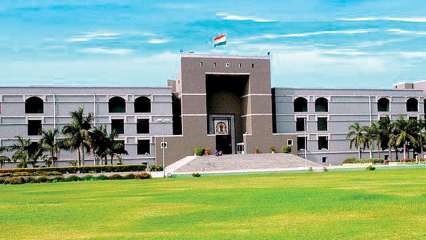New Delhi: The Gujarat High Court has set aside certain clauses of a government order that restrained private, unaided schools from collecting tuition fees until they reopened, according to information reaching here.
A division bench of Chief Justice Vikram Nath and Justice JB Pardiwala heard the petition filed by an association of unaided schools and set aside the following clauses:
· Clause stating that no fees to be charged by any unaided schools either towards the tuition fees or in relation to any optional activity as long as online classes are being held.
· Clause stating that the expenditure incurred in the salary of teaching and non teaching staff of the Schools to be considered while determining the fees for the next year.
· Clause stating that fees already paid, to be adjusted against the fees which would become payable upon physical opening of schools.
The court also asked the federation and the State Government to sit and talk with an open mind and open heart, resolve its issues amicably, post which a fresh Government Resolution in this regard is to be issued by the State government.

The petitioner, an association of unaided schools imparting pre-primary, primary, secondary and higher secondary education within the State of Gujarat approached the Court seeking directions to quash and set aside the Government Resolution dated 16.7.2020 issued by the Education Department, State of Gujarat.
According to the, Petitioners the State Government issued the impugned resolution and declared that no fees shall henceforth be charged by any unaided school either towards tuition fees or in relation to any optional activity so long as the schools are being conducted online. If already paid, shall be adjusted against fees which would become payable upon the physical opening of the schools.
The Petitioners states that the Disaster Management Act, 2005 does not confer any power on the State Government to issue a Government Resolution seeking to interfere with the fee structure of self-financed school.
The State government contended before the Court that that instead of questioning the legality and validity of the impugned Government Resolution, it is expected of the federation to extend its cooperation having regard to the current pandemic situation. They added that even otherwise, there is no merit in the contention raised on behalf of the writ applicants that the impugned Government Resolution has been issued without jurisdiction.

The Court noted that the only question that falls for our consideration is whether the State Government is justified in issuing the Government Resolution directing the unaided private schools that they shall not collect fees from the students. A balance needs to be struck to protect the interest of the students and their respective guardians, and at the same time, also the interest of management of the unaided private schools.
The Court observed that schools need a certain amount of money to function and pay their staff salaries but it is also important to remember that not all families are financially stable at the moment. Therefore a balance is required between providing children a reasonable education and allowing the schools to stay afloat.
The Court suggested that while parents must acknowledge that online education of their child is not a futile effort on the part of the schools and schools need to be paid appropriately for their service, the Schools on the other hand must be conscious of the economic instability faced by their students’ families. It would be unfair for parents who have been laid off to be paying for suspended school services like bus, sports, activities, stationary etc.
The Court has said that Schools must be compassionate towards the struggles of their students’ families and should allow fees to be paid on a monthly basis or in installments so less burden is exerted on the parents. A flexible method of payment might encourage financially struggling families to keep their child’s education going, instead of pulling him out of school.
The Court added that expecting smaller institutions to bear their own expenses without receipt of tuition fees will force many institutions to shut down, permanently and if such institutions shut down, the fate of the students studying in such schools will be at stake and the parents of such students will have no option but to enrol them in bigger schools that charge higher amount of fees, when schools are reopened for student
Read Also: SC asks lawyer Oza: If seniors like you make such imputations, what would juniors learn?
The Bench stated that parents need to pay tuition fees to keep institutions running and arrangements can be worked out for payment of fees in instalments or on monthly basis but complete non-payment of tuition fees will hit the level of education.
– India Legal Bureau


